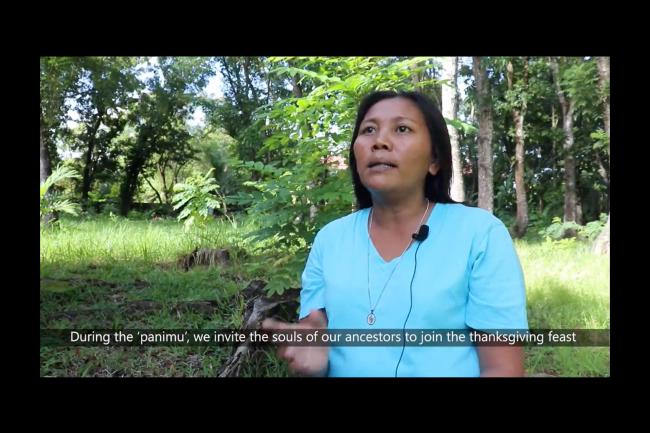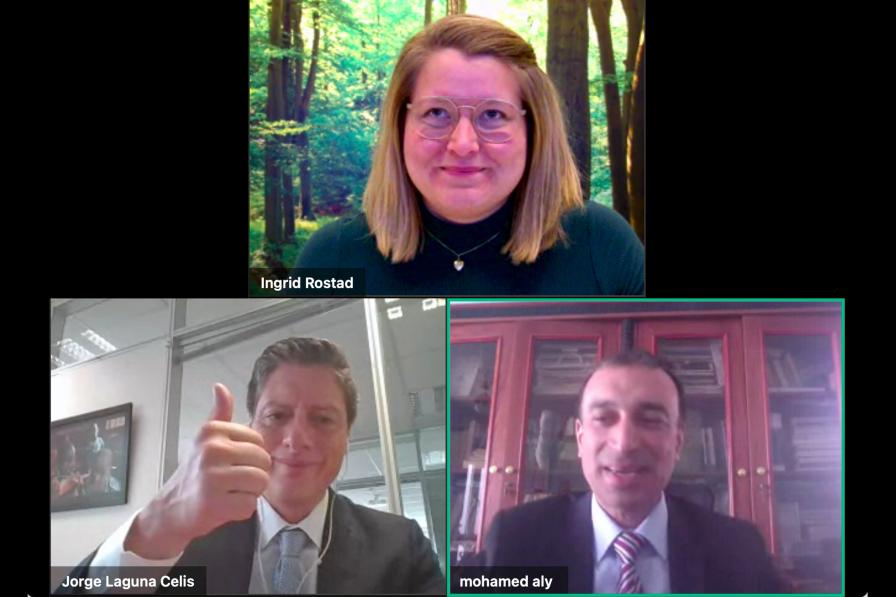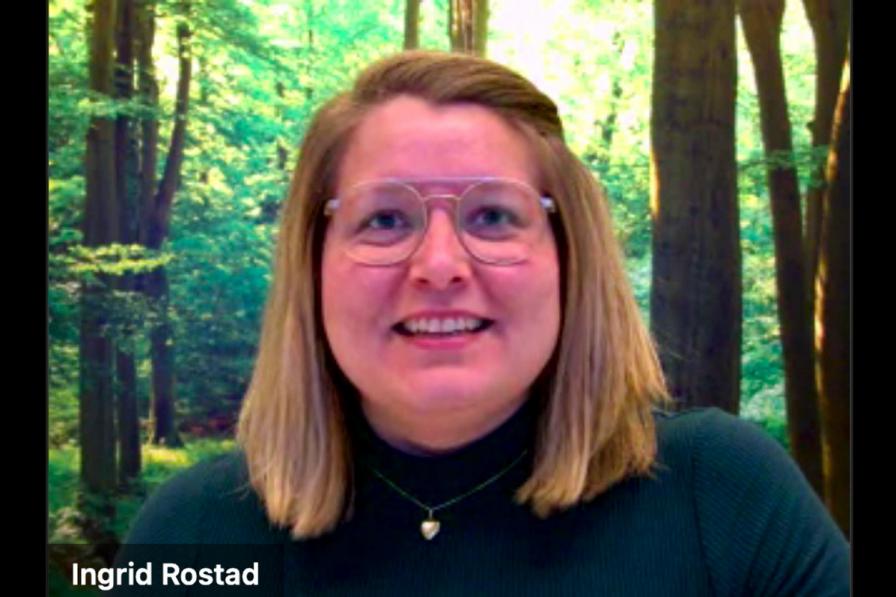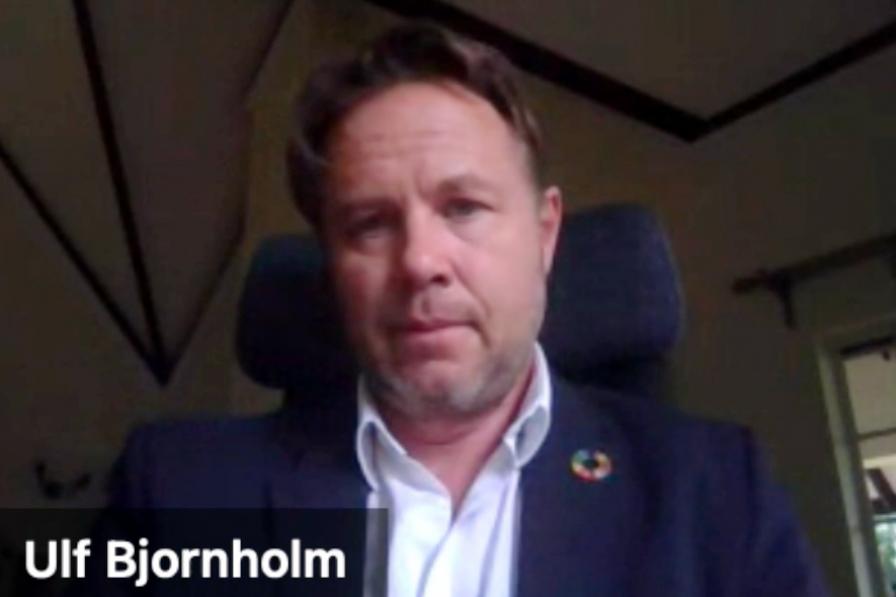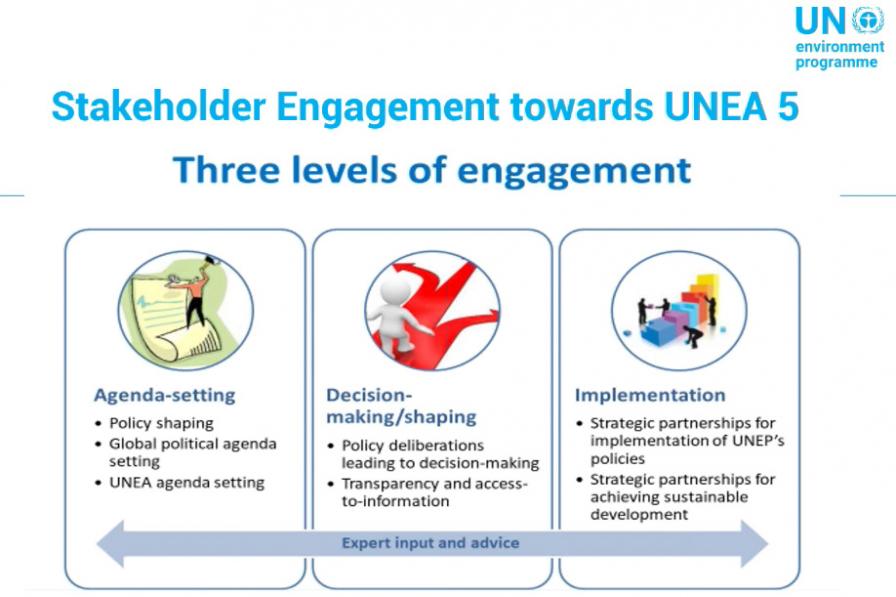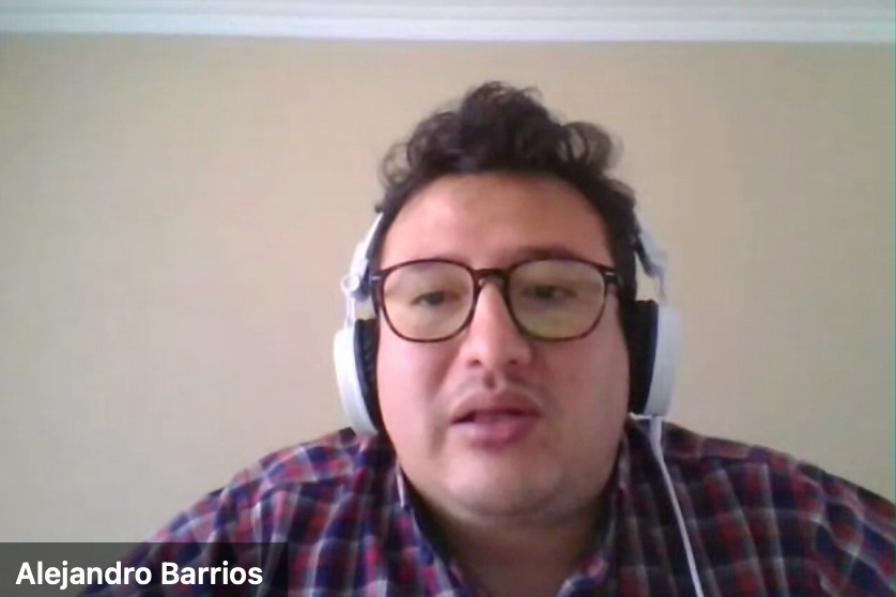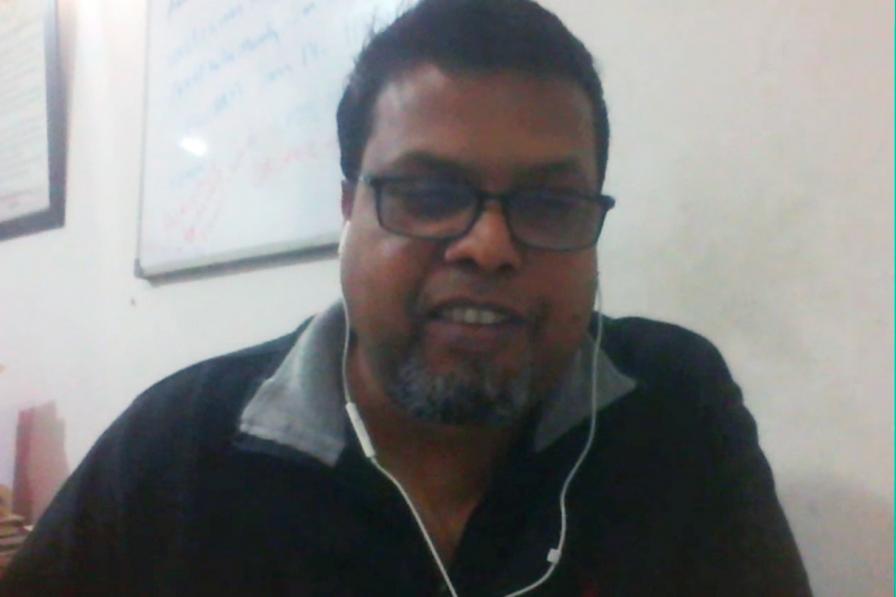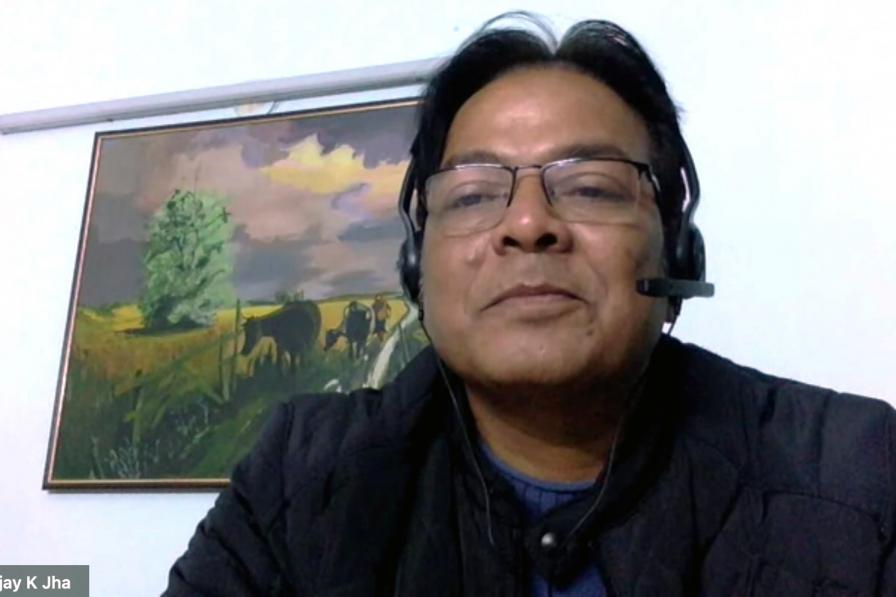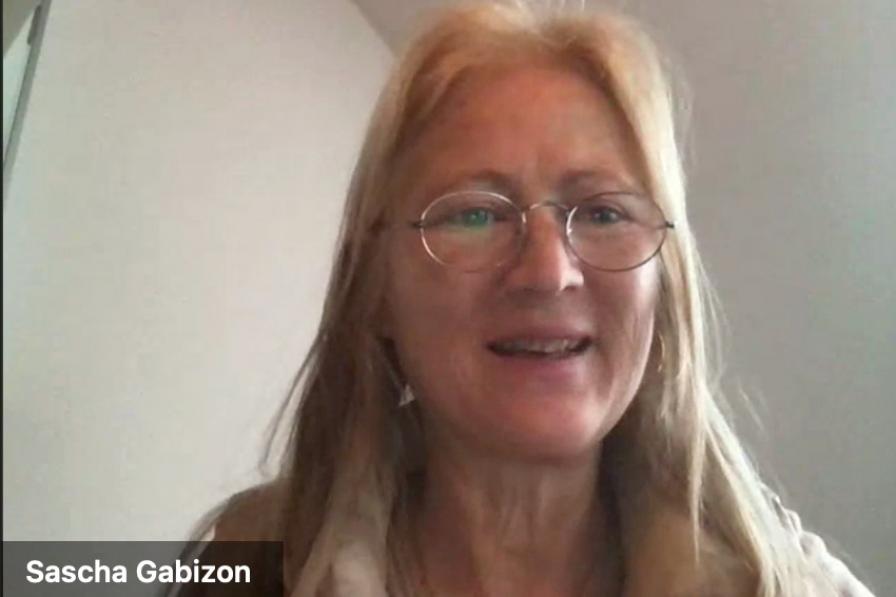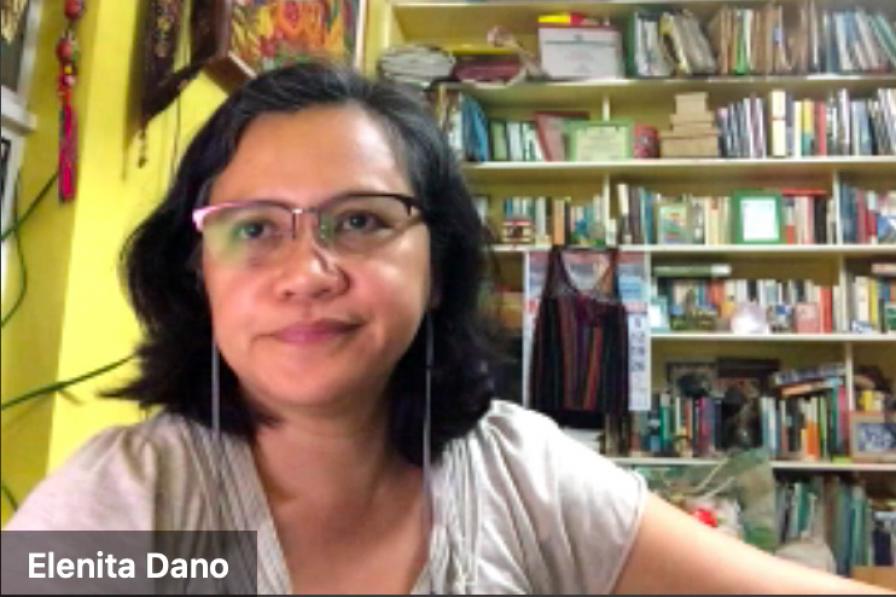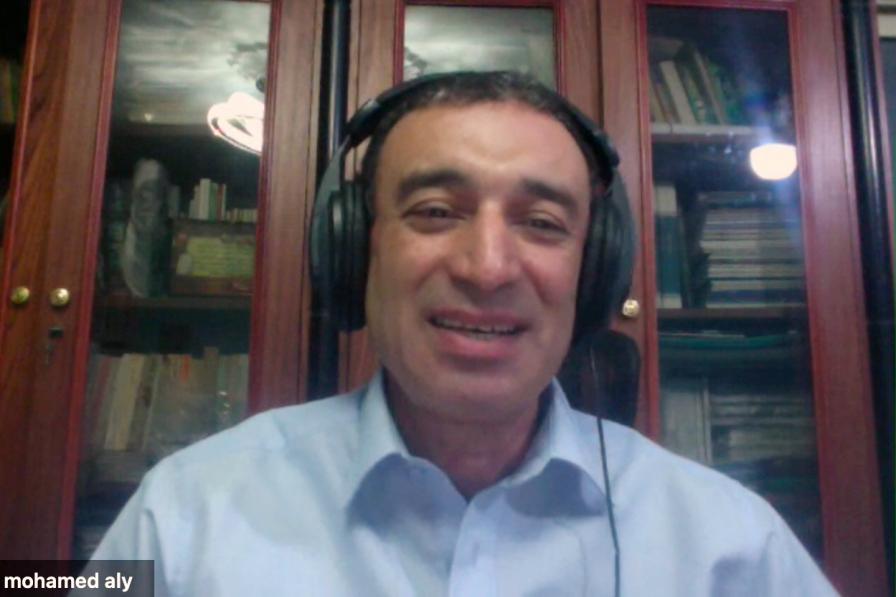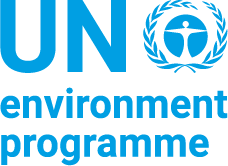The online session of the Global Major Groups and Stakeholders Forum (GMGSF) opened today to review the outcomes of five consultations held in 2020, and develop joint messages to convey to UNEA-5.
Addressing participants via video message, UNEA President Sveinung Rotevatn, President of UNEA and Minister of Environment and Climate of Norway, lauded the “enthusiasm, dedication, and commitment” of civil society in building today’s global environmental governance structures.
In their welcome remarks, Mohamed Abdelraouf, Chair, Major Groups Facilitating Committee, and Jorge Laguna Celis, UN Environment Programme (UNEP), said civil society reminded UNEA negotiators to be mindful of the people they work for, and underscored the part they can play in amplifying messages on the central role of nature in building a resilient and inclusive post-pandemic world.
Ulf Bjornholm, and Jorge Laguna Celis, UNEP, briefed participants on arrangements for the virtual and resumed in-person sessions of UNEA-5, to be held in 2021 and 2022 respectively. They noted that the “lean” online session of UNEA-5 – taking place on 22-23 February 2021 – will focus on administrative and procedural matters, while more substantive decisions would await the full UNEA-5 session, tentatively scheduled for February 2022.
The Forum then convened two panel discussions addressing Major Groups and Stakeholders perspectives on the UNEP Medium Term Strategy (MTS 2022-2025). Presenting community-level experiences, the first panel opened with a keynote video highlighting the contribution of, and challenges faced by, environmental defenders from indigenous communities in the Philippines. The second panel focused on lessons from farmers, women, and groups working on disaster and conflict and erosion technology.
The discussions highlighted, among other concerns:
- the need to build on local knowledge and citizen science in developing solutions to environmental problems;
- the absence of language on the rights of environmental defenders;
- insufficient attention to the need for a green recovery from the Covid-19 pandemic;
- the contribution of indigenous communities to diverse, inclusive, and sustainable food systems;
- the need for more robust accountability frameworks, based on the polluter pays principle;
- the threat to financing, responsibility, and accountability for disaster and conflict management work as this topic grows from subprogram to mainstreaming across UNEP; and
- the need for legislation to phase out of highly hazardous pesticides.
The Forum also considered inputs on UNEP's proposed Programme of Work (PoW), with a focus on the link to MTS targets on climate, nature, and chemicals/pollution. Participants suggested tweaking the PoW to better reflect:
- the importance of animal welfare;
- the role of citizen science;
- the need for systemic change;
- better engagement with regions, the faith-based communities and local communities;
- the need for improved chemicals/waste financing; and
- more work on the rural/urban interface.
Following the session, Forum participants met in an open working group to draft messages to UNEA-5.
IISD, through its Earth Negotiations Bulletin Meeting Coverage, is providing daily web coverage from GMGSF. A summary report of the meeting will be published on Sunday, 14 February 2021.
